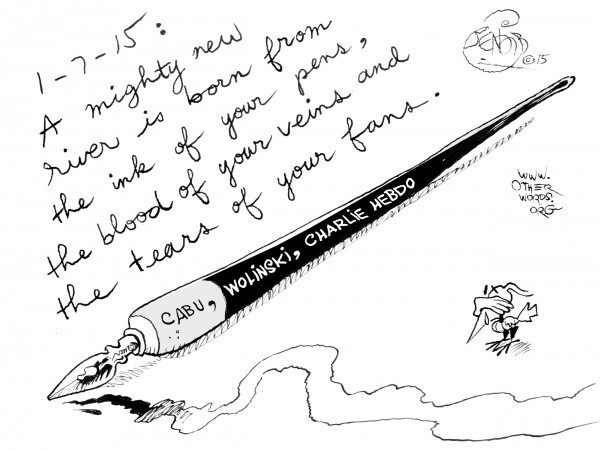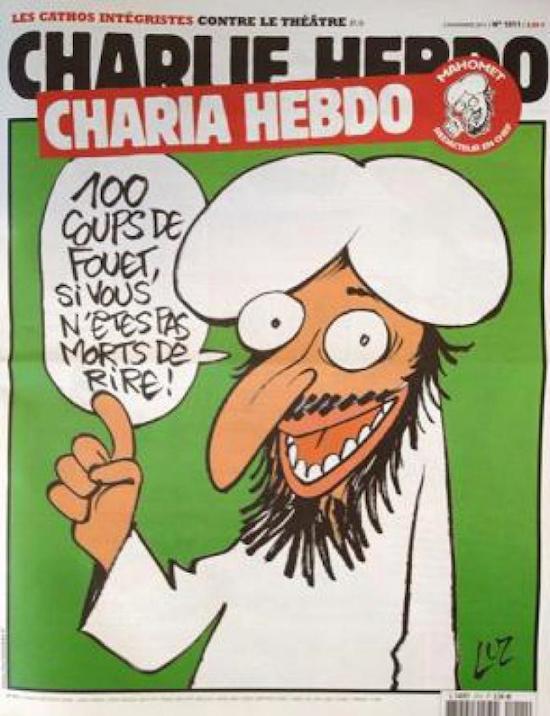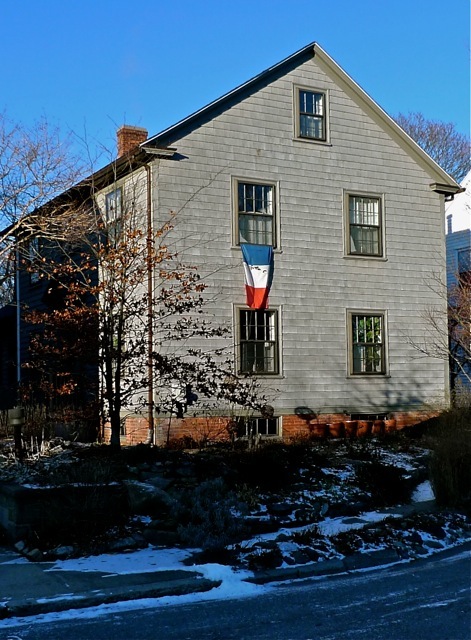Even the mass murder in Paris last week, Islamic fanaticism's latest assault on liberty, may not be enough to awaken Europe. For the political correctness of the European Union's multiculturalism has already filled the continent with millions of Muslims from the Middle East and Africa who have no allegiance to the countries they now inhabit and only contempt for democratic secularism. Europe has become Eurabia.
Vile as it is, Islamic fanaticism is just 600 years behind what used to be Christian fanaticism, whose own wars devastated Europe for centuries before people began to suspect that God might not be worth such bloodshed and oppression and that government might best be separated from religion. The line between religious faith and superstition, bigotry, and murder is a thin one, because for the self-righteous, God is always available as absolute license.
That is what has made religion such a target for satire, including that of the French political weekly Charlie Hebdo, whose editors and cartoonists were massacred this week by those who see themselves as the soldiers of Islam, though the newspaper often ridiculed not just Moslems but Christians and Jews as well. It just has been a while since so many Christians and Jews rationalized murder in pursuit of religious imperialism.
The murder of the French journalists by the religious crazies will be a monument to the power of ridicule, a power Mark Twain may have described best: "For your race, in its poverty, has unquestionably one really effective weapon -- laughter. Power, money, persuasion, supplication, persecution -- these can lift at a colossal humbug, push it a little, weaken it a little, century by century; but only laughter can blow it to rags and atoms at a blast. Against the assault of laughter nothing can stand."
Yet of course this week it was the ridiculers who were blown away while their murderers shouted "God is great" and fear of more such attacks increased as the entire West, not just Europe, began to face the frightening consequences of a policy of uncontrolled immigration.
While the West halfheartedly wages war against the religious crazies in the Middle East, it has allowed entry to many people who, if they have not yet resolved to subvert democratic institutions, are enormously susceptible to such appeals.
The United States is lucky that, unlike Europe, most of its immigrants, legal and illegal, are only Central and South Americans of no particular ideology, merely economic refugees. But the terror attacks of Sept. 11, 2001, were largely the result of the failure of immigration law enforcement, a failure that has only worsened. Even now most illegal immigrants caught in the United States are not deported but only given summonses to appear in court -- and the Department of Homeland Security admits that 70 percent fail to report and simply disappear into the country, whereupon states like Connecticut make them eligible for driver's licenses and other benefits, exercising a liberal form of nullification of federal law.
Nullification is what a half century ago Southern states sought to do to to thwart federal civil rights law. That was disgraceful, but somehow liberal nullification has become respectable.
Admitting people who can show they want to live in a secular democracy, who appreciate the country's history and objectives, and who would assimilate into its culture is one thing. Such people likely would become better citizens than many of the native-born. But admitting anyone in the name of multiculturalism is treason.
For defending the country requires fearlessly defending the culture, as the journalists of Charlie Hebdo did, if only inadvertently, even at their most offensive -- especially at their most offensive.
France is being tested now. But our turn is coming.
Chris Powell is managing editor of the Journal Inquirer, in Manchester, C0nn.



